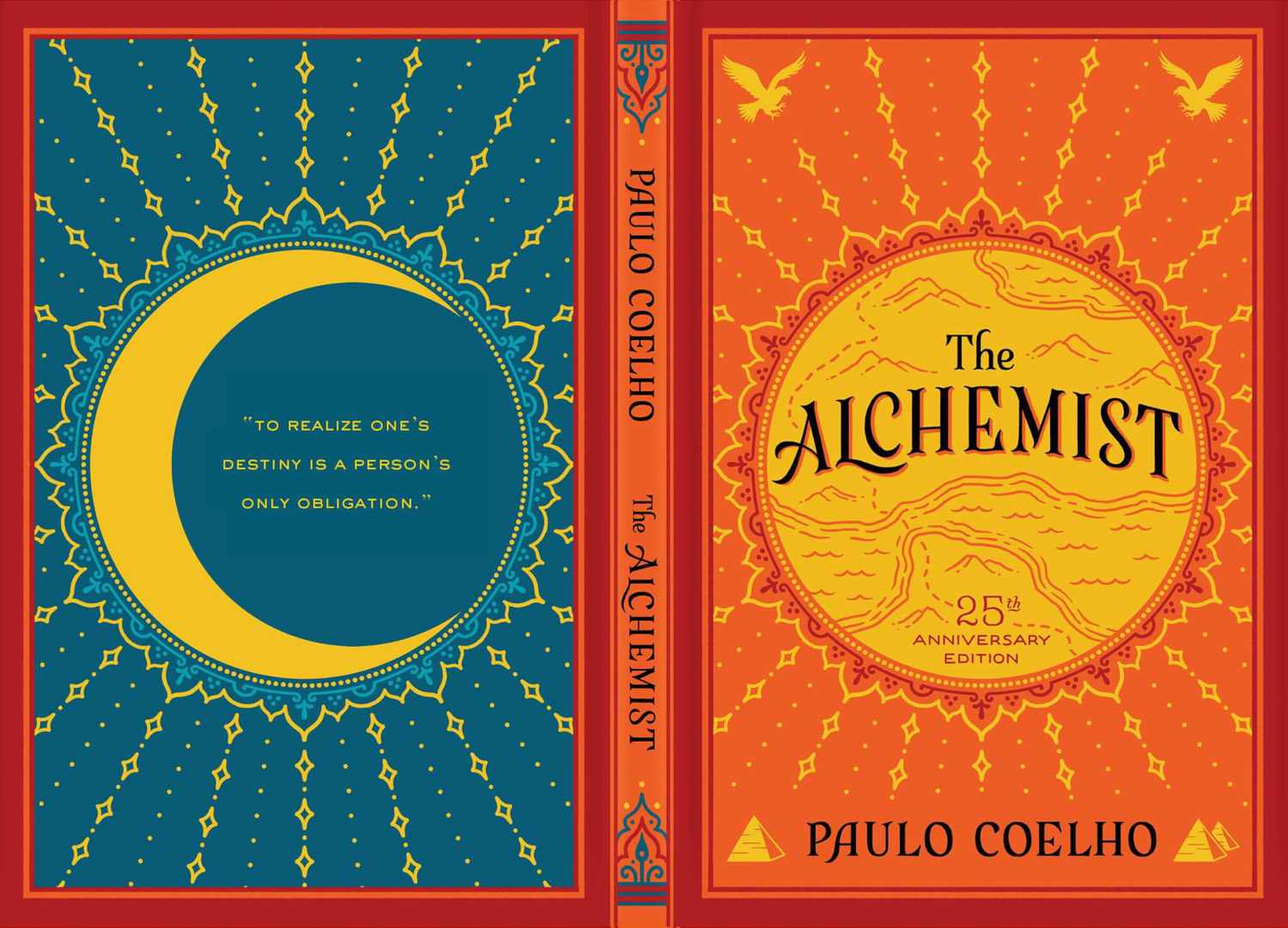Nuzhat Jahan Hashmi
“Alchemist” is a novel by Brazilian author Paulo Coelho, first published in 1988. The story follows Santiago, a shepherd boy who dreams of finding a treasure hidden near the Pyramids in Egypt. Santiago embarks on a journey to follow his dream, encountering various obstacles and meeting several interesting characters along the way.
Throughout the novel, Santiago learns about the importance of following one’s dreams and listening to one’s heart. He also learns about the concept of the “Personal Legend,” which is the unique path that each person must follow in order to fulfil their purpose in life.
The novel is written in a lyrical and philosophical style, with many elements of magical realism. It has become a modern classic and has been translated into numerous languages, selling millions of copies around the world. “The Alchemist” is often cited as a source of inspiration for readers seeking to pursue their own dreams and find meaning in their lives.
“The Alchemist” has been the subject of various literary criticisms since its publication in 1988. Some critics have praised the novel for its inspiring message and engaging storytelling, while others have criticized it for its simplistic and formulaic plot.
One of the most common criticisms of “The Alchemist” is its use of a formulaic plot structure. The novel follows a familiar pattern of the hero’s journey, with the protagonist embarking on a quest, encountering various challenges, and eventually achieving his goal. Some critics argue that this plot structure is too predictable and lacks originality.
Another criticism of the novel is its use of magical realism. While magical realism is a common element in Latin American literature, some critics argue that Coelho’s use of it in “The Alchemist” is heavy-handed and detracts from the realism of the story. They suggest that the novel would have been more effective if it had been grounded in a more realistic setting.
Despite these criticisms, “The Alchemist” has also been praised for its inspiring message and universal appeal. The novel’s central theme of following one’s dreams and listening to one’s heart has resonated with readers around the world, making it a bestseller in many countries. Some critics argue that the novel’s simplicity is part of its appeal, allowing readers to easily connect with its message.
Overall, while “The Alchemist” has its detractors, it continues to be a popular and influential novel that has inspired readers around the world to pursue their dreams and find meaning in their lives.
“The Alchemist” is a novel that touches upon several important social, cultural, economic, and literary lessons. Here are some of the key lessons that can be gleaned from the book:
Social Lessons:
- The importance of pursuing one’s dreams: Santiago, the protagonist of the novel, learns that it’s important to follow one’s dreams and not let fear or societal expectations hold one back. This message resonates with readers of all ages and backgrounds, encouraging them to pursue their own passions and goals.
- The power of connection: Santiago meets several interesting characters along his journey, learning important lessons from each of them. This highlights the importance of building connections with others and being open to learning from different perspectives.
Cultural Lessons:
- The importance of tradition: Santiago comes from a family of shepherds, and he learns important lessons from his father and grandfather about the traditions of their community. This highlights the importance of cultural heritage and the wisdom that can be passed down through generations.
- The universality of spiritual beliefs: “The Alchemist” draws upon a variety of spiritual and mystical beliefs from around the world, highlighting the universal nature of human spirituality. The novel encourages readers to be open to different beliefs and perspectives rather than limiting themselves to a single worldview.
Economic Lessons:
- The value of hard work: Santiago learns the value of hard work through his experiences as a shepherd, and he applies this work ethic to his journey towards finding his treasure. This underscores the importance of perseverance and dedication in achieving one’s goals.
- The dangers of materialism: Santiago learns that the true value of his journey is not in the treasure he seeks but in the personal growth and wisdom he gains along the way. This highlights the dangers of valuing material possessions over personal fulfilment.
Literary Lessons:
- The power of storytelling: “The Alchemist” is a masterful example of the power of storytelling, with its engaging plot, memorable characters, and timeless themes. The novel inspires readers to think about their own stories and the impact they can have on the world.
- The importance of symbolism: “The Alchemist” is rich with symbolism, from the desert landscape to the alchemist’s laboratory. The novel demonstrates the power of using symbols to convey deeper meaning and evoke emotion in readers.















